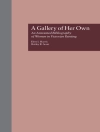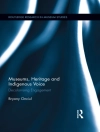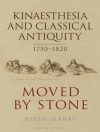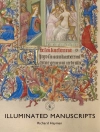In ‘Mornings in Florence, ‘ John Ruskin artfully merges his profound appreciation for art, architecture, and the beauty of the natural world with a personal narrative that captures the essence of his experiences in the Italian city. Written in a lyrical yet accessible style, Ruskin’s prose reflects the Gothic revival movement and the burgeoning fascination with the Pre-Raphaelites, seamlessly weaving together observations on Florentine landmarks, such as the Duomo and Ponte Vecchio, alongside philosophical musings on art and beauty. This work serves not only as a travelogue but also as a meditation on the profound relationship between art and the human experience, illustrating how the cultural heritage of Florence has been a recurring inspiration throughout history. John Ruskin, a prominent Victorian art critic, social thinker, and philanthropist, found himself profoundly influenced by his travels in Italy, particularly Florence. His engagement with the city’s historical context and artistic legacy deeply resonated with Ruskin’s advocacy for the Gothic style in opposition to the industrial age’s mechanistic tendencies. His background in art education and his position as a critic provide a lens through which he interprets Florence, transforming his personal journey into an intellectual exploration of culture and morality. ‘Mornings in Florence’ is highly recommended for readers interested in the intersections of art, philosophy, and travel literature. Spanning beyond mere descriptions, Ruskin’s reflections offer valuable insights into how art shapes and enriches life. As both a guide and a philosophical companion, this book invites readers to immerse themselves in the beauty of Florence while pondering the broader implications of aesthetic experience.
Over de auteur
John Ruskin (1819-1900) was a seminal English art critic, social thinker, and poet, whose writings had extensive influence on the Victorian and Edwardian eras. Best known for his work on the art and architecture of the Middle Ages and his criticism of industrialization’s impact on society and the natural world, Ruskin’s literary output was diverse, highly original, and imbued with his deep moral and social concerns. His book ‘Mornings in Florence’ encapsulates his belief in the spiritual and artistic significance of the art of the great Italian masters. Ruskin’s approach to writing was both scholarly and poetic; he argued passionately for the inherent value of art while advocating for social and environmental responsibility. Beyond ‘Mornings in Florence’, other significant works include ‘Modern Painters’, his magnum opus which offered a new way of looking at art, and ‘The Stones of Venice’, which examined Venetian architecture and its decay, serving as a metaphor for the deteriorating moral fabric of society. Ruskin’s idiosyncratic style was characterized by a rich, descriptive language and an ethical imperative that art should serve to improve the lives of individuals and society as a whole. His influence extended to the likes of Tolstoy, Proust, and Gandhi, making Ruskin one of the defining minds of his generation.












